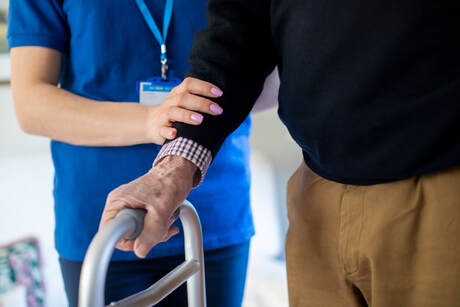 When planning for life as a senior citizen, it would be smart to include Long Term Care on that bucket list. Statistics show that 70 percent of people over 65 will need long-term care services of one kind or another, and it can be very expensive. Medicare coverage will not pay for most of the long-term care services that may be needed. There are federal public programs, such as the Older Americans Act, that pay some long-term services, but like Medicaid they target people with the most functional and financial need. The National Clearing House for Long-Term Care Information reports that there is a very good chance some or all of the services may have to come from personal income and resources. Even with a modest need for assistance at home with personal care, such as a home health aide visit three times a week, based on 2008 average costs could run $18,000 per year.
To help seniors understand the types of Long-Term Care available, the Mayo Clinic has broken down the various types of services that may be required: Home Care. Personal or home health aides may help with bathing, dressing and other personal needs at home, as well as housekeeping, meals and shopping. Home health nurses provide basic medical care at home. Day Program. Day programs for adults offer social interaction, meals and activities—often including exercise, games, field trips, art and music—for adults who don’t need round-the-clock care. Some programs provide transportation to and from the care center as well as certain medical services, such as help in taking medications or checking blood pressure. Senior Housing. Many communities offer rental apartments intended for older adults. Some senior housing facilities offer meals, transportation, housekeeping and activities. Assisted Living. Assisted living facilities offer staff members to help with medications, bathing, dressing and basic medical care, as well as meals, transportation, housekeeping and activities. Some assisted living facilities have on-site beauty shops and other amenities. Nursing Home. Nursing homes offer 24-hour nursing care for those recovering from illness or injury. Nursing homes also offer end-of-life care. Services may include help with bathing, dressing and toileting, wound care, rehabilitative therapy, and can help with respirators or ventilators. Continuing-Care Retirement Community. Continuing-care retirement communities offer several levels of care in one setting—such as senior housing for those who are healthy, assisted living for those who need help with daily activities, and round-the-clock nursing care for those who are no longer independent. Residents can move among the various levels of care depending on their needs. The costs of services in some community programs, such as adult day service programs, are often provided at a per-day rate, but vary based on overhead and programming costs. Many care facilities charge extra for services provided beyond the basic room-and-board charge, although some may have “all inclusive” fees. The average costs across the nation in 2009 were:
The total amount spent on long-term care services in the U.S. in 2005 was $206.6 billion. On an aggregate basis, the biggest share, 49 percent, is paid for by Medicaid. On an individual basis, however, “who pays for long-term care”, can look very different. People with their own personal financial resources do not qualify for Medicaid unless they use up their resources first paying for care, so-called “spending down”. If you have reasonable income and assets, most likely you will be paying for care on your own. This information is provided with the understanding that the association is not engaged in rendering specific legal, accounting, or other professional services. If specific expert assistance is required, the services of a competent, professional person should be sought. Provided as a public service by the Pennsylvania Association of Community Bankers. Comments are closed.
|
AuthorWrite something about yourself. No need to be fancy, just an overview. Archives
December 2017
Categories
All
|
|
Pennsylvania Association of Community Bankers
800 N. 3rd Street, Suite 304 Harrisburg, PA 17102 Phone: (717) 231-7447 [email protected] | sitemap (C) All Rights Reserved Our Privacy Policy Our Copyright Policy |
"To empower community banks to make positive impact within the communities they serve."
|
